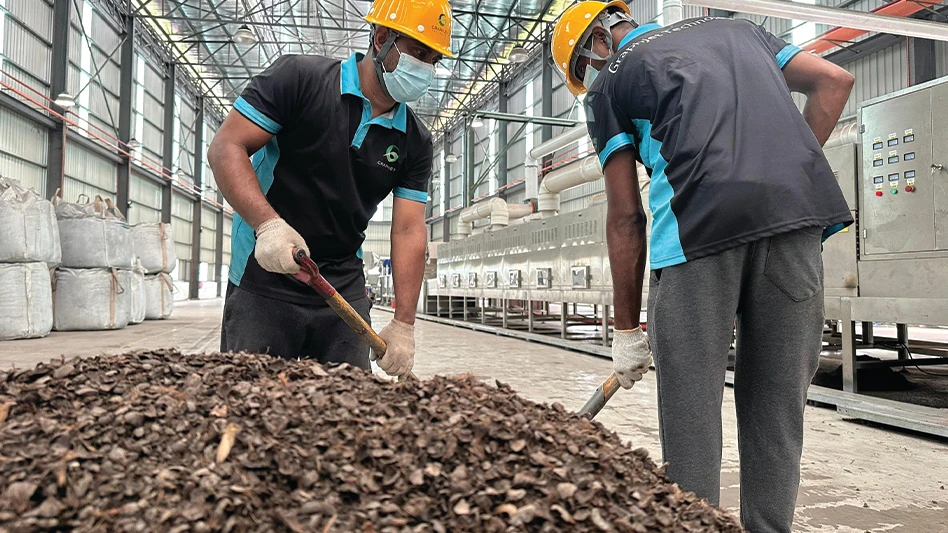
Photo courtesy of Graphjet Technology
Graphjet Technology, which produces artificial graphite from biomass waste residues from the process of palm oil, has begun operations at its first commercial-scale green graphite facility, located in the Subang District in Malaysia. The company, headquartered in Kuala Lumpur, Malaysia, says it is the world’s first commercial-scale plant capable of recycling palm kernel shells—a highly abundant agricultural scrap byproduct in the country—to produce battery-grade graphite.
The company says the new facility has the capacity to recycle up to 9,000 metric tons of palm kernel shells annually, producing up to 3,000 metric tons of graphite per year. Graphjet adds that this level of production is sufficient to support battery production for approximately 40,000 electric vehicles (EVs) per year.
RELATED: Graphjet Technology to build new facility in Nevada
With a footprint exceeding 91,000 square feet, Graphjet says its facility will support a local workforce of 200 jobs.
The company says it has received its first shipment of palm kernel shells and has begun shipping graphite product samples to its customers. Also, the company plans to produce hard carbon at the facility to provide feedstock for its planned graphite facility in Nevada.
“The Graphjet team has achieved a monumental step towards the execution of our strategy and vision to become a reliable supplier of green graphite globally,” says Graphjet co-founder and CEO Aiden Lee. “With this facility online, Graphjet is now the primary player in green graphite production outside of China, as the company has the largest production capacity ex-China.
“This facility, which is the first green graphite facility to commence operations outside of China, demonstrates our ability to leverage our technology at scale, and we are proud to commence commercial operations at the world’s largest green graphite facility of its kind. This facility will provide us with an ability to generate revenue by fiscal year 2025, support our valued customers and establish a strong foundation for a successful launch in the United States in Nevada.”
Graphjet’s facility utilizes its patented technology to produce graphite directly from palm kernel shells. The company says its process reduces its operational carbon footprint by up to 83 percent and reduces costs by up to 80 percent compared to traditional methods. Per kilogram of graphite produced, Graphjet says it produces 2.95kg CO2 emissions and 17kg CO2 emissions from natural and synthetic graphite production, respectively, in China.
Latest from Recycling Today
- BMW Group, Encory launch 'direct recycling’ of batteries
- Loom Carbon, RTI International partner to scale textile recycling technology
- Goodwill Industries of West Michigan, American Glass Mosaics partner to divert glass from landfill
- CARI forms federal advocacy partnership
- Monthly packaging papers shipments down in November
- STEEL Act aims to enhance trade enforcement to prevent dumping of steel in the US
- San Francisco schools introduce compostable lunch trays
- Aduro graduates from Shell GameChanger program





